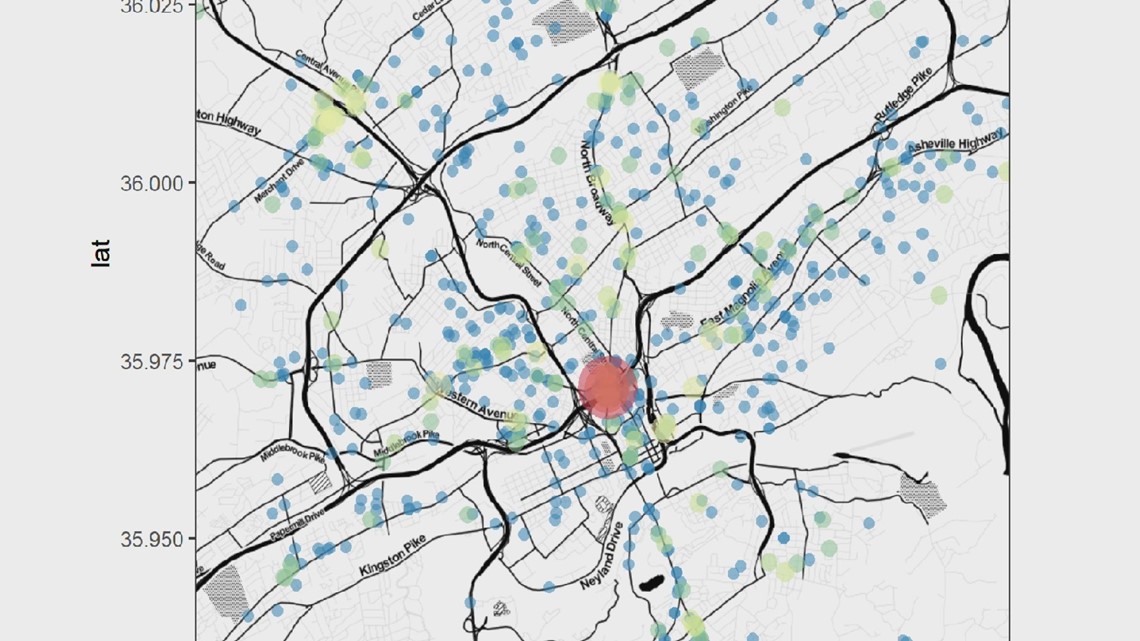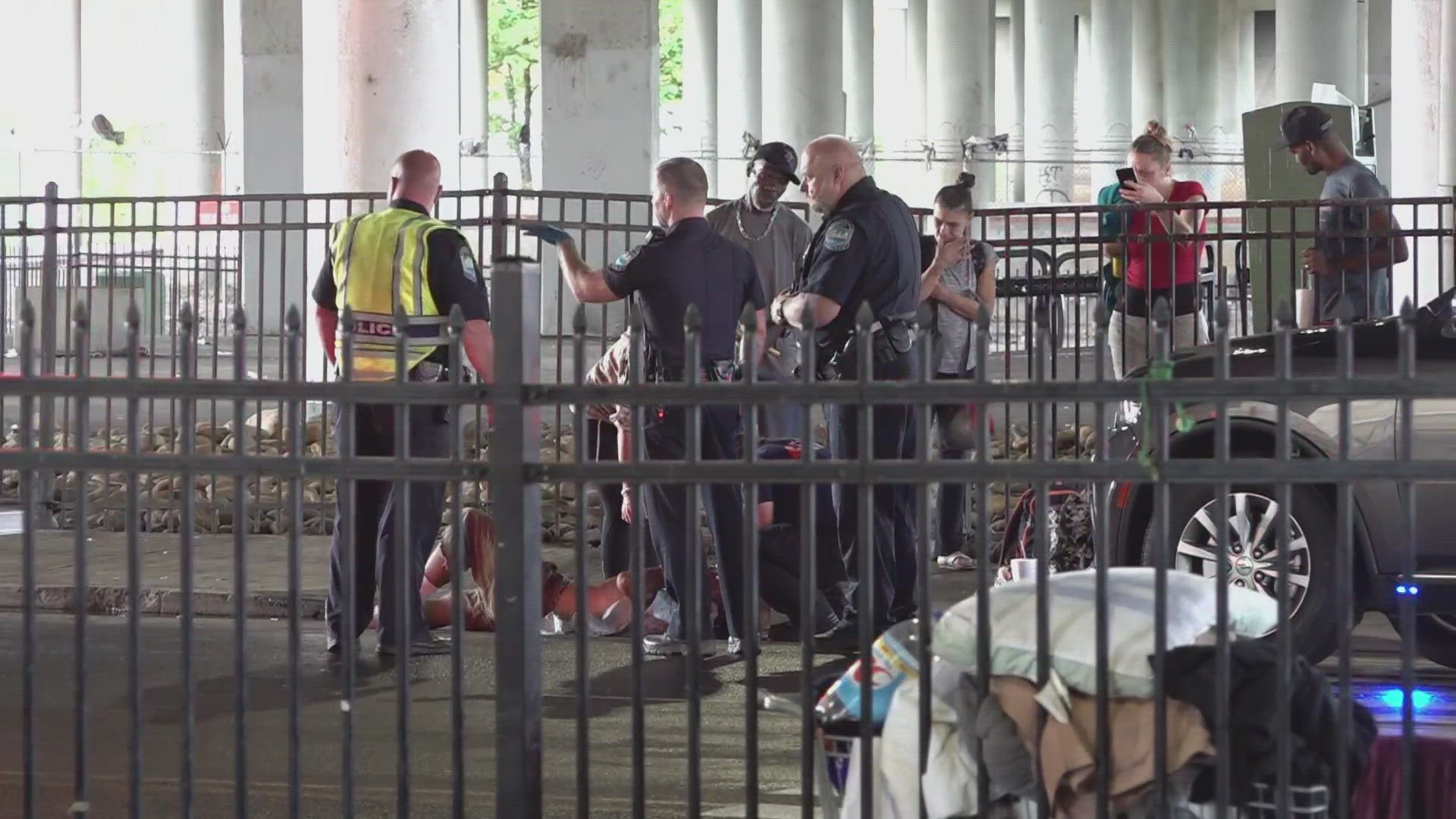KNOXVILLE, Tenn. — A drug 50 times stronger than heroin, 100 times stronger than morphine, is the leading killer in overdoses across the United States.
According to the Centers for Disease Control and Prevention, overdoses are the leading cause of death in people under the age of 50. Fentanyl allowed overdoses to take the lead over both heart disease and cancer.
The nationwide implications of the fentanyl epidemic have a ripple effect locally. According to the Knox County District Attorney's office, there were 505 suspected overdose deaths in 2022.
For comparison, 472 people died due to COVID-19 in 2022. Meaning, more people died by overdose than COVID last year.
According to data collected by the Knoxville Fire Department, one of the hotspots for overdose-related 911 calls is a three-block span of Broadway, near the viaduct. The location, beneath the interstate, received about half the total overdose calls in 2022.


Local agencies are feeling the implications of that. Knoxville Area Rescue Ministries sits across the street from the overdose hotspot.
KARM said about 19% of people who come through their doors immediately disclose a struggle with addiction. By the time those individuals reach a longer-term program, that disclosure amount jumps to 85%.
Todd Gilbert, the Chief Operating Officer with KARM said that disclosure shows a level of trust is established.
"We believe the reason why that number rises is because they realize at that point, we're not here to judge them. We're not here to make them feel shame and guilt for what they've been doing," Gilbert said. "We're here for them. And they feel like they can trust us to self-disclose those issues."
However, it's not always easy to get people experiencing homelessness, or living in active addiction to buy into the mission.
"This stigma around drug abuse creates shame and guilt internally, which makes them feel marginalized. And then society- through the stigma of drug abuse pushes them on the margins of society, " Gilbert said. "It all starts with outreach efforts."
KARM is a 100% drug-free facility. Meaning, they do not allow people to sleep in the dorms, eat in the hall, or attend chapel with drugs in their possession. Gilbert said every guest goes through a security process to ensure the facility is safe and secure. He said most people are compliant with those rules.
Down the street from KARM, Metro Drug Coalitions' Gateway is a newer addition to the block. It hasn't even been open a year, yet is already bringing new approaches to addressing the overdose crisis in the area.
"We do have fentanyl test strips. So, if someone does purchase street drugs, they can use this test strip to identify whether or not there's fentanyl in those drugs," said Karen Pershing, the Executive Director of the Metro Drug Coalition.
In addition to the test strips, MDC also gives out naloxone upon request to increase harm reduction among people who are using drugs.
"If we can catch them before they overdose, then recovery is a beautiful thing. And we see it all day every day in this facility," she said.
MDC's Gateway hosted a Fentanyl Awareness Day event with a panel of experts. Those experts ranged from TBI agents and doctors to counselors and pastors.
Most people on the panel emphasized that stigma is the big thing preventing a lot of people from seeking recovery.
Gilbert said his hope is for the community to focus more on lifting people up, rather than breaking them down.
"It's about helping our brothers and sisters, mothers and fathers, sons and daughters who are dying of addiction," Gilbert said. "We have to reduce the stigma around drug abuse, drug misuse, and addiction to where we can have conversations and not allow people to feel guilt and shame."
Additionally, KARM said another way to prevent overdoses on the streets is to avoid giving money to people panhandling. Oftentimes, the money gathered by folks panhandling on interstate exits, or on the streets is used to purchase something that could be harmful to them.
"Even if someone isn't going to use the money for something that's nefarious, they are going to use it on something that isn't actually beneficial to move them forward," Gilbert said.
For people looking to show generosity, Gilbert suggested packing snack packs, water bottles and resource cards to help point them in the direction of homeless service agencies.

